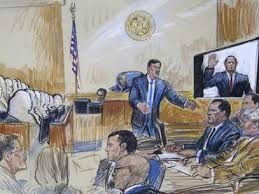Definition of Deconstruction (in Philosophy)
Miscellanea / / November 09, 2021
Conceptual definition
Deconstruction is a philosophical 'operation', in the context of the theoretical corpus developed by the Algerian philosopher Jacques Derrida (1930-2004), who addresses the dismantling of a series of founding concepts of the metaphysics of West.

Philosophy training
The term is a translation with respect to the notion of Destruktion elaborated by Martin Heidegger. When working on this notion, Derrida points out that the reading that he seeks to propose does not imply so much the idea of a "destruction" as demolition of the previous metaphysical order, but rather that deconstruction would point to a dismantling operation in the sense of dismantling a construction (grammar, conceptual) to show how its parts are put together.
Of construction, structuralism, post-structuralism
Deconstruction has been associated with the structuralist current, given his work on the structures of language. However, it supposes, in turn, an anti-structuralist gesture, because it is about disarming such structures, not only linguistic, but also social, institutional, political, cultural and philosophical. For this reason, Derrida's developments, in some contexts, are included within the “post-structuralist” tradition, of which Derrida would be one of its main references. The dismantling operation, to which we initially referred, thus aims to understand the way in which a philosophical-cultural scaffolding was built throughout the history of the West. Therefore, although it proposes to "disarm" certain structures, it implies, at the same time, the ability to "rebuild" them.
On the (im) possibility of a definition
Ascribing to the Derridian theory itself, it is difficult to give a positive definition of deconstruction because, according to the author, deconstruction itself eludes all definition. Consequently, we can approach an understanding of deconstruction through a negative path: It is limited to a grammatical linguistic model, it is not a technique or a method of analysis, nor a review. It would not be an analysis because it does not seek to decompose structures into their simple elements, in an origin non-decomposable, but those elements related to a supposed origin would be, themselves, subject to the operation deconstructive.
The problem of origin will be a fundamental nucleus of deconstruction, which replaces all reference to an original presence by the idea of an imprint of imprint: every mark in language always refers to another mark, but never to an absolute presence, as postulated by tradition metaphysics. From this perspective, every linguistic sign operates, then, as a trace that never refers to an original presence, but to a chain of dislocated meanings. On the other hand, deconstruction could not be reduced, then, to a critique in the sense Kantian of the term, because the Kantian critical apparatus is, also itself, a subject to be deconstructed.
For this reason, it has been affirmed that deconstruction would be a “negative theology”, that is, a discourse that would refer to an unrepresentable beyond in language. Faced with this interpretation, Derrida points out that, in line with what has been referred to regarding the notion of footprint, there is no original meaning that lies beyond language. Hence the idea that there would not be, according to the author, an “outside the text”.
Finally, Derrida will say that deconstruction is not even an "operation" or an "act" that can execute a subject, applying it to a certain "object", but responds to the idea of an "it" impersonal. With this, the philosopher focuses on the way in which, from the deconstructive perspective, it is necessary to question the modern separation between subject and object. On conclusion, points out the philosopher, any statement that he affirms "deconstruction is X", under the logical form "S is P", would be irrelevant, because there would not be, in any case, a delimitable essence.
Deconstruction as a chain
As we have said, deconstruction could not be defined. However, it is a word that can be replaced by a series, a chain of meanings, to which Derrida he usually recurs throughout his theoretical corpus: "writing", "trace", "différance", "supplement", "hymen", "drug"," Margin "," girth "," parergon ", and so on. The list constitutes an always open chain, because no word can give it a closed, —totalizing— meaning; rather, the logic of meaning here will always refer to another open meaning, within an infinite chain of substitutions.
To conclude, it is worth mentioning that philosophical deconstruction has been influencing such vast areas ranging from the architecture until the gastronomy.
Consulted bibliography
DERRIDA, J. (1997) “Letter to a friend Japanese". Translation by Cristina de Peretti, in El tiempo de una thesis: Deconstruction and conceptual implications, Proyecto A Ediciones, Barcelona, pp. 23-27. Derrida digital edition in Spanish.
Topics in Deconstruction (in Philosophy)
